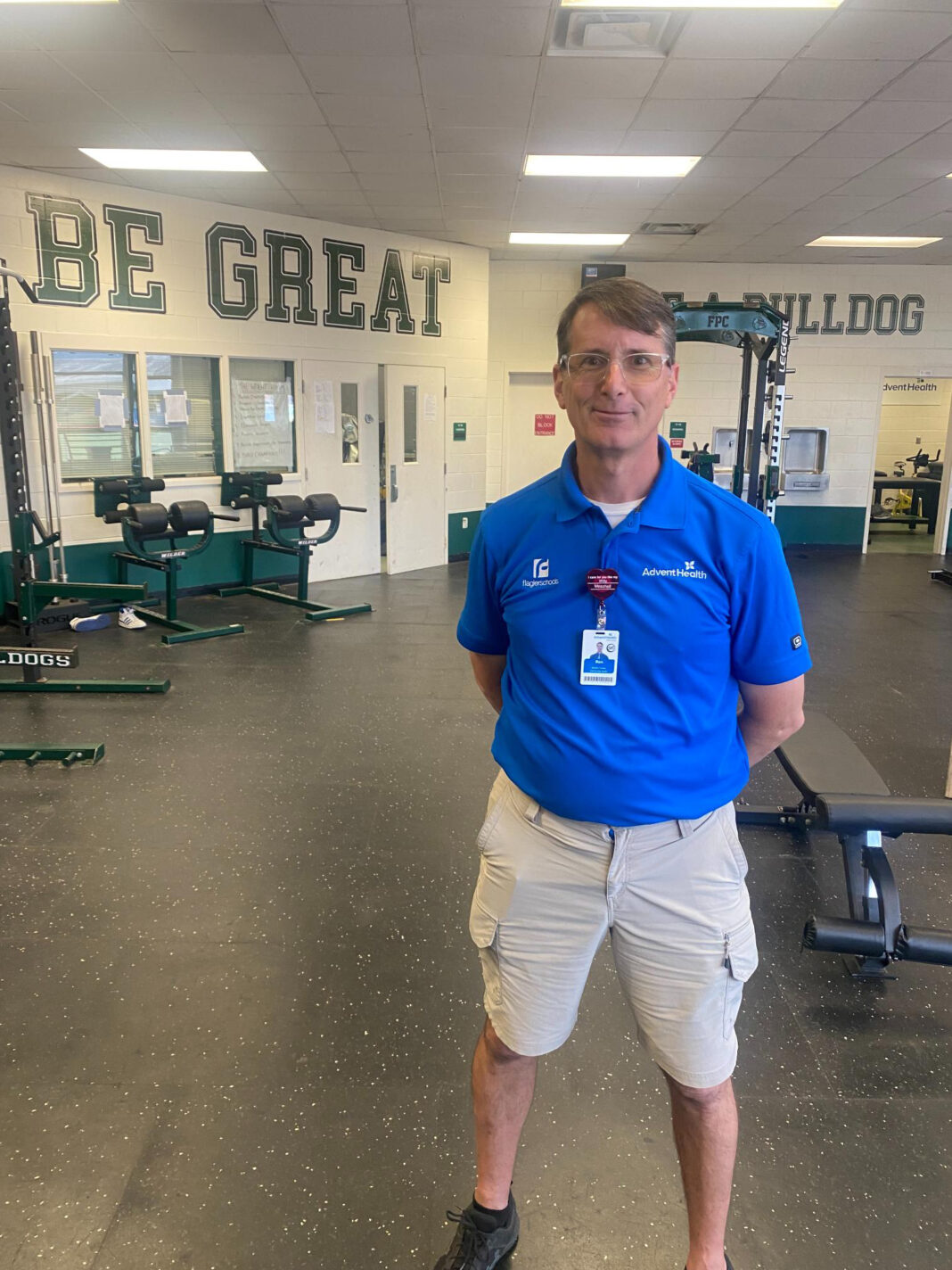On a very hot Florida morning, Stacy Mitchell, defensive lineman on the football team and senior at Flagler Palm Coast High School, arrived at practice feeling unwell.
“Normally, if I’m not feeling good, I’ll stay home, but that day I pushed myself,” Mitchell, 17, of Bunnell, said. Little did he know, he was on the verge of a serious heat-related incident. After an intense morning workout, he collapsed in the locker room, unable to move.
“I sat there for maybe five to 10 minutes before they took me to the training room,” Mitchell said.
AdventHealth’s head athletic trainer for Flagler Palm Coast High School Ron Steinwehr rushed to Mitchell’s side after two coaches alerted him.
“They told me, ‘Mr. Ron, Stacy’s down. He needs your help,’” Steinwehr recalled.
Steinwehr immediately recognized the danger Mitchell was in.
“It was a case of exertional heat stroke,” Steinwehr explained. “Part of our policies with AdventHealth and Flagler County Schools is that we cool first, then transport second.”
In a race against time, Steinwehr and the coaching staff placed Mitchell into a cold-water immersion tub, a key part of their heat emergency protocols. They also wrapped cold towels around his neck and face, closely monitoring his symptoms. As Mitchell’s condition stabilized, emergency services arrived to provide additional care.
Mitchell made a full recovery, but his story highlights the very real dangers athletes face in extreme heat.
“You’d think athletes could handle the heat the most,” Steinwehr noted. “Unfortunately, environmental risks are unpredictable, and I always have to stay on high alert.”
As part of his job, Steinwehr constantly monitors conditions using a device called a wet bulb globe thermometer (WBGT). The device measures heat, humidity, sun, sun angle, cloud cover and wind to determine the true impact of weather conditions.
“It’s the gold standard in measuring heat stress here in Florida,” Steinwehr said. “When the WBGT reading goes above 92°F, athletes can’t practice outside. It’s too dangerous.”
When it reaches those conditions, athletic trainers recommend alternatives to outside practices.
Prevention is the name of the game, according to Steinwehr, and he helps make sure student athletes are well-prepared.
“We educate them about heat-related illnesses, and remind them constantly to hydrate, eat properly, and listen to their bodies,” he said.
AdventHealth’s formal partnership with Flagler Schools began in 2021 and represents a $750,000 commitment from the health care organization to bolster student mental health, provide care for student athletes, and establish more career pathways for graduates.
AdventHealth also provides free sports physicals and ECG screenings to students entering 6th-12th grades to ensure young athletes are ready to play sports in the new school year.

